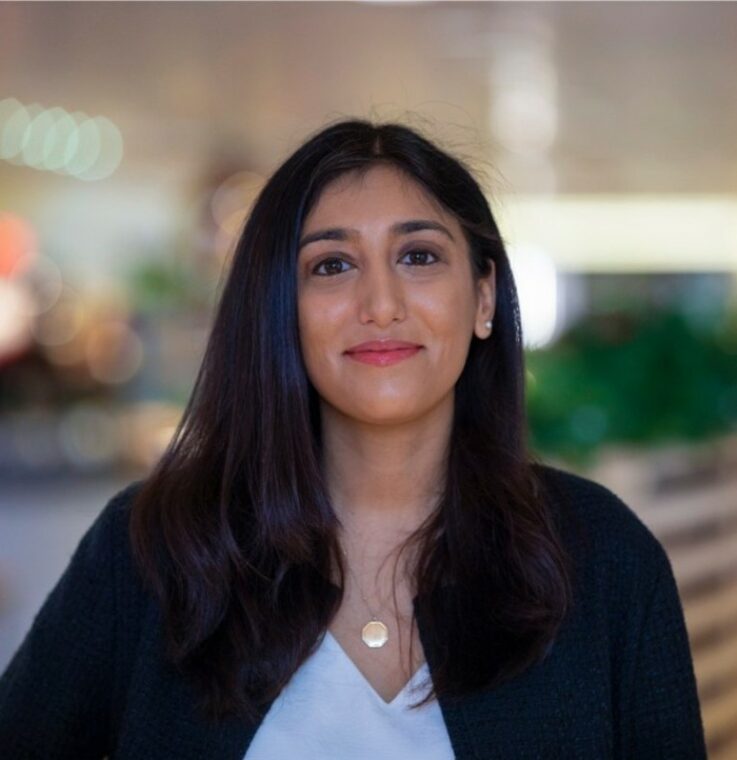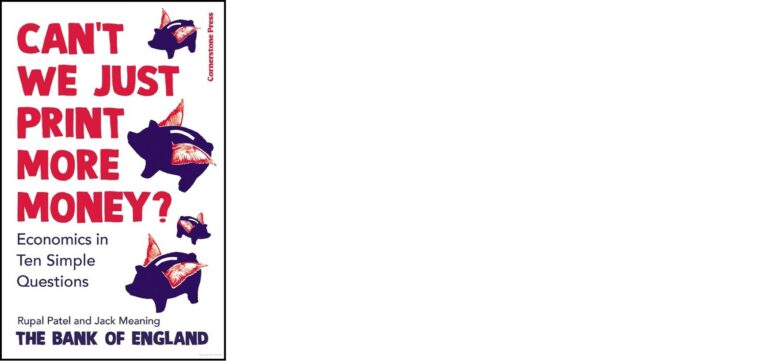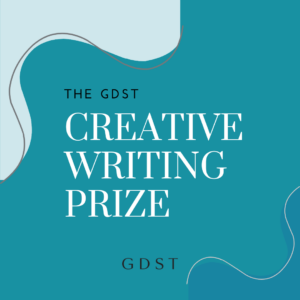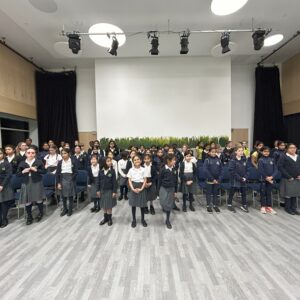News & Events
Alumnae Spotlight: Rupal Patel

Rupal Patel Class of 2010
After leaving Croydon High School in 2010, Rupal attended the University of Nottingham to study Economics and International Economics BSc Hons, including an exchange to the Malaysia campus for a semester in her 2nd year. She went on to do a Master’s in Economics at The London School of Economics and Political Science.
Rupal said, “I chose to study Economics at A level because it was during the financial crisis, and I had no idea what was happening. All over the news, you saw images of bankers packing up their desks and walking out with cardboard boxes; people I knew lost their jobs, and I couldn’t really make sense of it and studying Economics helped me piece together what was happening. I enjoyed it so much that I studied it at university and then applied to the Bank of England at an interesting time after the aftermath of the financial crisis – I wanted to get in involved in trying to figure out how the economy would evolve and how I could help to get it out of the financial crisis and move on.”
Rupal has worked at the Bank of England for more than nine years. She is currently Senior Private Secretary to the Deputy Governor for Markets, Banking and Resolution, advising governors on their policy decisions and working with colleagues to ensure they have the correct information to make the decisions.
Last year, Rupal and colleague Jack Meaning authored the Bank of England’s first book, Can’t We Just Print More Money? which offers an accessible introduction to economics themed around ten questions. Why are all my clothes made in Asia? How come I’m so much richer than my great-great-grandma? And what even is money? The Bank of England is Britain’s most important financial institution, responsible for printing money, regulating banks, and keeping the economy running smoothly. This book takes us inside the hallowed halls of the Bank of England to explain what economics can – and can’t – teach us about the world. The book is accessible, authoritative, and witty, a crash course in economics and why it matters. Along the way, it offers idiosyncratic examples of economics in action: from the City of London to Springfield Power Plant, from Babylonian gold lending 4,000 years ago to the economic effects of the Covid pandemic.
The Bank of England has launched a classroom resource for GCSE English students based on the book. Every state secondary school in the UK is being sent the six-lesson resource, which features extracts, presentation slides and worksheets, and a copy of the book. The lessons have been designed using key extracts from Can’t We Just Print More Money? as the basis for analysis, critical evaluation and writing tasks which also introduce and explore key economic ideas and concepts. Jack and Rupal said: “The book and the resources are designed to open economics up to as many young people as possible, so they have the opportunity to explore and understand the economic world around them. Key theories are explained through engaging and relevant examples from daily life, which we hope will spark lots of discussions in the classroom.” Students can explore key economic ideas in each lesson and reflect on popular English Literature texts. You can use them to support your school’s English curriculum or cross-curricular studies. “We hope the book can show that economics is for everyone, not just economists. It might even be fun.”
Mrs Gower fondly remembers Rupal as an outstanding Geographer who used her excellent understanding of economics and statistical data to inform her mature approach and reflections on global issues. She is not surprised that Rupal has continued to use her skills successfully in the world of work. Head of Economics and Business, Mrs Serradilla said “Rupal has been an inspiration for our future economists at Croydon High School. It is wonderful to see how she is making a difference through her economic policy decisions, for our economy”
Rupal told us “Studying economics at Croydon High helped to spark my interest in the subject which has led me to following it through to university and now building a career in economic policy. I hope the book inspires young women to study economics at school and further to better educate themselves about the world around them.”
By making economics more accessible, perhaps an inspired student will one day be an economist working alongside Rupal at the Bank of England!
Mrs Roe
Alumnae Relations Manager
More news
Awards and Celebration
GDST Creative Writing Year 12 & 13 – highly commended
Co-curricular



